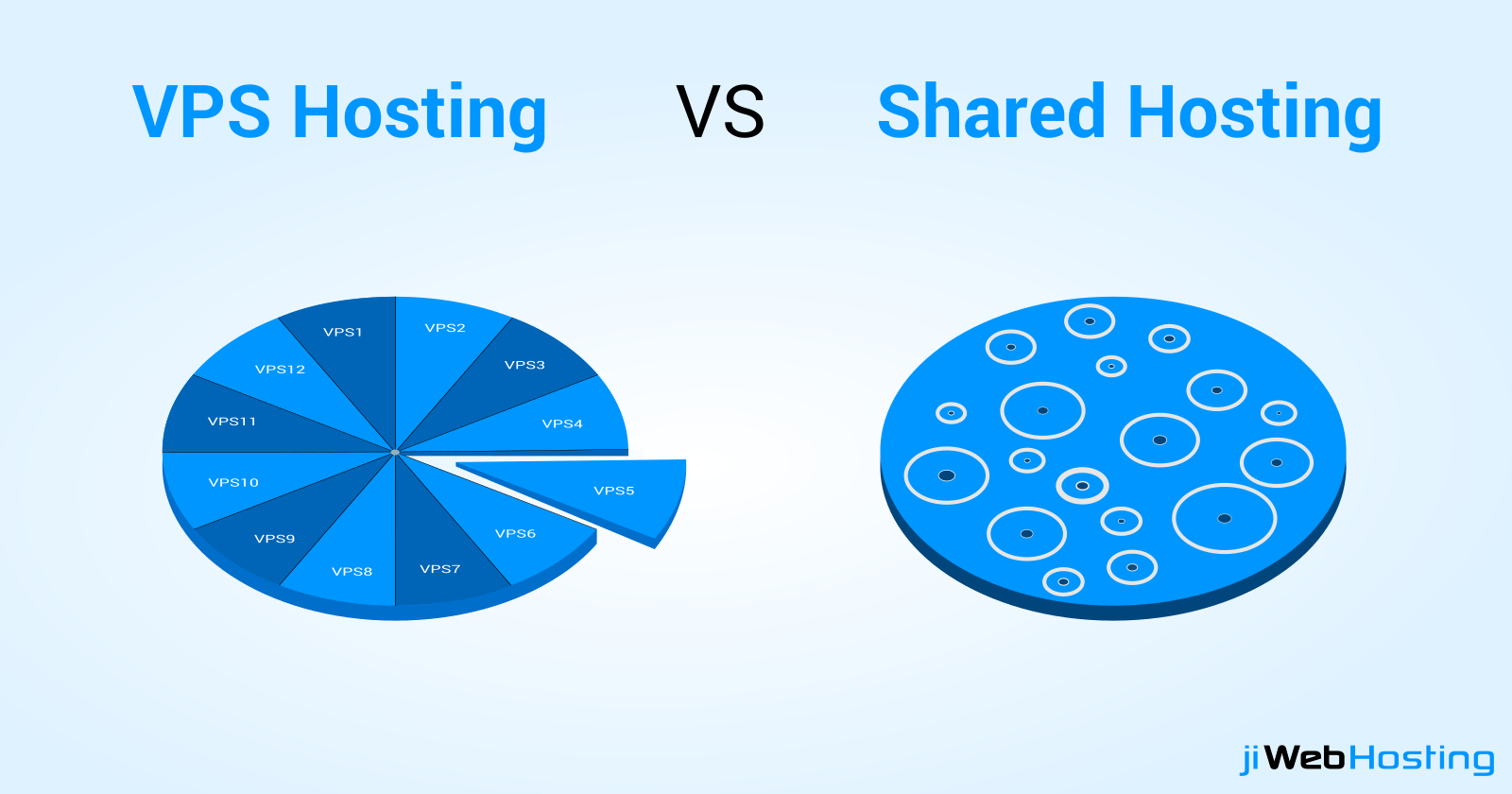When choosing which sort of hosting service to use for your website, your brain is overflowed with various questions. You have to assess the different options available and choose what hosting service perfectly matches your requirements. The hosting service you pick ought to have the capacity to meet your immediate needs and furthermore have the capacity to scale as your website and traffic grow with time.
Two particular plans you would need to take a look at are the Shared Hosting and the VPS Hosting. There are some quite significant contrasts between the two, so let's see which option is best for you.
Security: Sharing server resources has enormous advantages from a cost perspective, however, it can wreak ruin on the security end of things. It truly relies on how much the hosting provider has put resources into guaranteeing dedicated assurance for its shared hosting clients. While shared hosting is viewed as exceptionally protected, security ruptures can happen in it as well as a shared server can not ensure 100% security.
The fundamental explanation behind this is the thing that we call the noisy neighbor issue or the fact that when one shared hosting customer commits an error or encounters a technical trouble, it will probably affect other websites since you are for the most part sharing space on a similar machine. Client support will also be restricted when contrasted with VPS hosting. However, if your website won't require sensitive information from clients, you ought not to have an issue with shared hosting.
You can guarantee your website's security with more vigorous safety features that are available through VPS hosting. In the event that your financial budget allows, you can actualize better client support services that will help users when they require it. If your business needs to ensure the privacy of individual information, it is worth considering the switch to a VPS.
Scalability: The scalability factor is the tipping point for the shared versus virtual server failure. If your website sees or is expected to see approximately 30,000 monthly visits, a shared hosting plan can suit you and your website's requirements. Considerably more than that and you may begin getting interior errors from your host. You will then need to consider a VPS or a dedicated hosting plan which can deal with any measure of traffic.
While shared hosting is a great choice for the short term, you may confront scalability issues, over the long run, contingent upon how your website grows. If you discover you are crossing your storage capabilities, or if the client request is surpassing server space, you may need to think about scaling up to enhance the performance. The adjustable features of VPS hosting enable you to scale all the more rapidly and effectively.
If you anticipate you will, in the long run, need to scale up to take care of demand, the investment in VPS hosting now may pay off later on.
Performance: As you may figure, more resources mean better performance. Shared hosting is just as performant as the technologies your host has implemented for speed. Typically, you have more control over the performance factor with a VPS, however, let's discuss a little more in detail. Likewise, with any shared hosting plan, different sites could influence your website's performance. It is the risk you keep by selecting the more economical shared hosting plan.
However, if your performance requirements are constrained and you value ease of maintenance, shared hosting will probably yield a higher degree of profitability. It's nothing unexpected that VPS hosting offers better overall performance in view of the bandwidth it offers. You will have the greater adaptability to configure your applications on the server, however, you should ensure you have a committed system admin to keep the server running easily.
If you have high traffic demands or numerous websites to manage, VPS is the better choice.
Server Resources: As the names suggest, shared hosting clients share server resources and dedicated hosting clients get a server dedicated to their sites’ requirements. And, a VPS user has a number of users on the same server using their own dedicated hardware entities. When you share server resources with others, you will confront a few restrictions. While no single account will affect another's experience, there will be maximum accessible CPUs, memory/RAM, and disk space.
Your website won't have the capacity to utilize resources beyond the maximum permitted limit. This may not be a major deal if your site does not require a huge amount of space or processing power. With VPS hosting, you will get more disk space and higher resource availability. This will be fundamental in the event that you need to grow your business and need to offer clients a user experience that goes beyond shared hosting level.
































Share this post on: